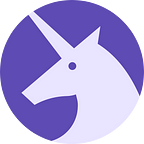I recently wrote an article about how our brand evolved from a hobby product to an agency. In that post, I focused mostly on the iconography and color pallet which is only a fragment of what makes up a brand. Let’s dive in a little bit deeper and talk about what a brand is and how we applied a process (similar to Jake Knapp’s 3 hour brand sprint) to build our own.
What is a Brand?
This isn’t a college essay, so I’ll spare you the cited text from Wikipedia. A brand is the essence of a business; it’s soul. It’s a bit spiritual, I know. But I’m not wrong. Brand’s can share all the same traits as individuals. A company is, after all, a collective of people. A brand can invoke emotions and carry a complexity and depth that, at times, even rivals an individual. I think of a brand as three pieces of equal weight:
- Identity
- Core Values
- Personality
Building an identity
We already went into great details about identity in our last post, so I recommend diving in there if you’re looking for a real-world example.
The Name
It all starts with a name. Before you can proceed any further in building a brand, you must give it a name. There are a myriad of angles to consider when choosing a name: language, demographic, connotation, meaning, length, and more. I could outline a million-and-one factors that tie into an identity, but the shortcut is to gather a small group of people that are a part of the brand and hash it out together. Your collective identity as individuals is your brand. It may evolve over time, but this process will get you to version one.
Iconography, Typeface and Color
It’s best to start with black and white and focus first on an icon. Again, this should be a collaboration of the co-founders to discuss the shapes and symbols that come to mind when thinking of your brand name. Before you ever touch design, it’s best to identify just a few keywords that represent the brand you want to create. When we were building Unicorn it was something like:
- Bold
- Beautiful
- Colorful
- Playful
- Unique
From there, you’ll have a much easier time coming up with the creative elements that help form your identity.
Core Values
You have probably seen core values in the form of a mission statement. While these have their place and value, they often feel stiff and void of authenticity. Core values can have a meaning and purpose in a public format, but the real power of core values is your adherence to them as guiding principles. Once they are established, you should check them against every decision you make until the process is habit because one day, these core values can supersede your identity.
Let’s look at recent news for example. When I mention Facebook, your mind probably doesn’t dwell on an app icon, colors or deeply analyze the meaning behind the name: “face” + “book.” Instead, the brand is more likely to trigger an emotion in you. Maybe it’s a fondness of having a network of relationships and friends. Or perhaps it’s jaded by recent privacy violations. Whatever the case, there are core values at play. Facebook’s actions are guided by values just like a sentient entity. If the emphasis is profit and growth rather than privacy, those values are bound to reveal themselves through their actions. As humans, we’re governed by inherited laws. Our environments shape our values and those values shape our decisions. Businesses are no different. Founders breathe life into these businesses, providing a public persona that grows and evolves just like people do.
Personality
You’ve knocked out the constructs of a brand by giving it an identity and initial set of values, but you have a long way to go. You can’t prepare a dish by simply identifying the ingredients. You have to draw upon your personality and creativity to make it into something meaningful. This is the most fun and also difficult part of building a brand. How do you make a virtual, inorganic thing into a seemingly sentient entity? You start by mixing in your own personality and that of your team.
I can’t speak for your journey, but I can share some of my own. Our business has had a few notable shifts over the years: from education, to consulting, and finally to an agency. When I first met Adam and Cesar, our business shifted to adapt to our common interest in Swift and teaching. Unicorn.TV was born and our personalities came through in the form of podcasts and tutorials. Then it was myself, Adam and Mike. The three of us loved to help others, create music, and admire art. Our products began to shift in that direction as we worked on Kurator, consult others, and host events. Today Unicorn is a much larger family. On a regular basis I’m either laughing or hustling with Terry, Adam, Robin, Kristen, Mark, Haik, John, Sohaib and many others. Each one brings their own flavor and flare to Unicorn. We are Unicorn and Unicorn is us.
Building a business isn’t just about success. A business can be a legacy or philosophy. Unicorn is my family. I’ve lived with some of my peers. Travelled to new places with others. I’ve grown as an individual and married my brand. Unicorn is sentient to me. I’m in love with this company. Everyday the brand is evolving with each new addition to the team. Our personalities are the keystone to our brand.
